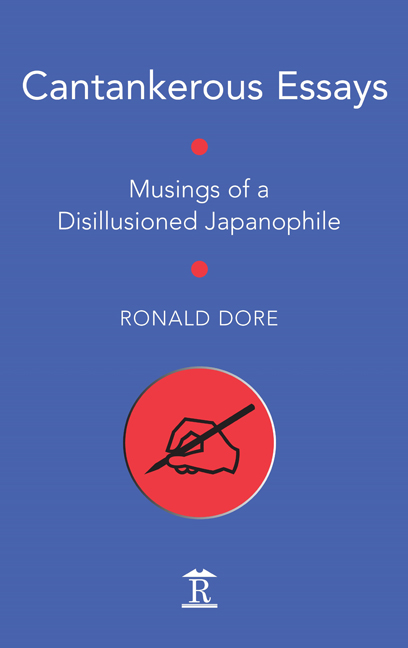Book contents
- Frontmatter
- Dedication
- Contents
- Introductory Musings
- Addendum 23 January 2015
- Chapter 1 THE RETURN OF THE NEAR-NATIVE
- Chapter 2 THE SOCIAL CONDITIONS FOR ECONOMIC PERFORMANCE AND THE PIKETTY BOOM
- Chapter 3 OPMF, CENTRAL BANK CONSERVATISM AND FINANCIAL ECONOMICS
- Chapter 4 JAPAN AND CHINA:COLLISION COURSE
- Chapter 5 JAPAN AND NORTH KOREA
- Chapter 6 A NEW BEGINNING?
- Chapter 7 THE NEW COLD WARS
- Chapter 8 FRIENDS, ALLIES AND ENEMIES
- Chapter 9 HUMAN PROGRESS…?
- Index
Chapter 5 - JAPAN AND NORTH KOREA
Published online by Cambridge University Press: 04 May 2022
- Frontmatter
- Dedication
- Contents
- Introductory Musings
- Addendum 23 January 2015
- Chapter 1 THE RETURN OF THE NEAR-NATIVE
- Chapter 2 THE SOCIAL CONDITIONS FOR ECONOMIC PERFORMANCE AND THE PIKETTY BOOM
- Chapter 3 OPMF, CENTRAL BANK CONSERVATISM AND FINANCIAL ECONOMICS
- Chapter 4 JAPAN AND CHINA:COLLISION COURSE
- Chapter 5 JAPAN AND NORTH KOREA
- Chapter 6 A NEW BEGINNING?
- Chapter 7 THE NEW COLD WARS
- Chapter 8 FRIENDS, ALLIES AND ENEMIES
- Chapter 9 HUMAN PROGRESS…?
- Index
Summary
THE PARTICULAR KIND of ‘silence’ dealt with in the last chapter can be laboriously defined as follows: ‘In a world divided into power blocs or spheres of influence, i.e. collections of states with closer ties (militarily or diplomatically more supportive of each other than with any state outside the bloc) the tendency for the press of each state is to gloss over facts which might discredit states which are fellow members of its bloc, and to emphasize the bad faith, aggressive or imperialist, etc. tendencies of other states with which that state may be in dispute.’ In the case just described of the Senkaku islands, of course, this means ignoring the actual sources of the dispute and interpret it as a case of a blameless Japan being harassed by big-bully China
A very similar case is the long-standing dispute about abductees, (young Japanese youths kidnapped by North Koreans in the years 1977 to 1980) between Western ally Japan and the once China bloc member, now independent ‘rogue state’, North Korea.
Here is the first paragraph of an editorial in The New York Times, 12-13 April 2014:
North Korea, signalled to Japan early this month that it is prepared to investigate the festering issue of Japanese citizens abducted by North Korean agents in the ‘70s and ‘80s. This is a surprising turnabout. It would be good if this North Korean move brought to an end the long-suffering ordeal of the Japanese family members of the abductees.
WHAT ACTUALLY HAPPENED
Poor old Japan, victim of the intransigence of the rogue state. The facts are quite otherwise as is well established among those who followed the events which preceded and followed the attempted rapprochement between Japan and North Korea, namely Prime Minister Koizumi's visits to Pyongyang, first on 17 September 2002, resulting in an agreement to establish diplomatic relations the following month, and secondly on 22 May 2004, trying to retrieve what could be retrieved from that original (unfulfilled) agreement.
Basic facts are not in dispute. As Kim Jong II personally acknowledged during Koizumi's first visit, ‘radical adventurism and ill-discipline’ in a faction of North Korea's security services had led them to bring submarines close to the shore and kidnap a number of teenagers who were later trained to become teachers of the Japanese language to Korean spies.
- Type
- Chapter
- Information
- Cantankerous EssaysMusings of a Disillusioned Japanophile, pp. 90 - 100Publisher: Amsterdam University PressPrint publication year: 2015



